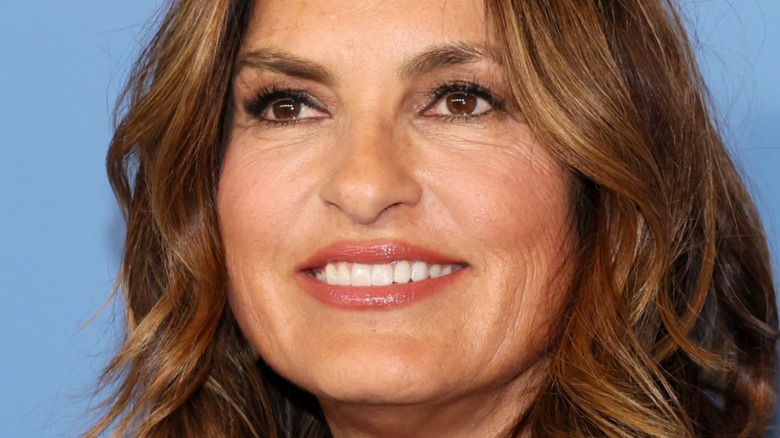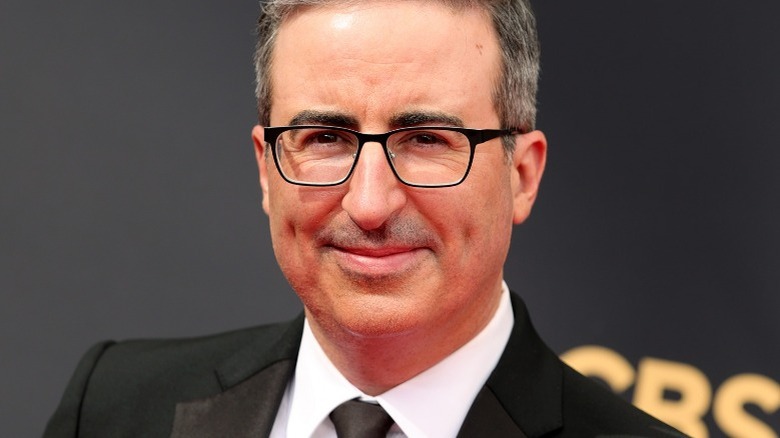Law & Order Is Catching Major Political Heat Again, And You Can Probably Guess Why
If anyone has cornered the market on procedural television, it is Dick Wolf. The name is synonymous with iconic characters and the brand that started it all. Popping on screen in the '90s, "Law & Order" wove gritty tales about detectives investigating crimes and the lawyers that prosecuted them. Actors such as Jerry Orbach and Sam Waterston became beloved in their roles and it wasn't long before an empire was built. Spin-offs such as "Law & Order: SVU" have gone on for two decades and Wolf has shown no sign of slowing down. He is also responsible for the "One Chicago" universe, a world that features the fire department, medical professionals, and police force in the same city across different shows.
"It's a constant exploration of possibilities," Wolf explained to Variety in an exclusive interview. "There are 56 actors under contract. The concept is there are nine shows, and anybody who's in any of the nine shows can appear in the other eight, even on different networks. It's pretty cool." This overarching model is certainly ambitious, but it isn't without its drawbacks. The popularity of "Law & Order" has also inspired immense backlash for a not entirely surprising reason.
John Oliver makes some solid points about police propaganda
Police-focused shows have been a cornerstone of lucrative television for decades but is a brand of television that is fast losing favor. Because of heavily documented police brutality, even shows such as the NBC comedy "Brooklyn Nine-Nine" have been criticized for showing officers in a sanitized light and not portraying any of the abuses highlighted during the Black Lives Matter movement (via Independent). "Brooklyn Nine-Nine" tried to address this head-on in its last season, but "Law & Order" has a more hard-lined perspective, opting to frame the NYPD only as heroes.
In John Oliver's political news comedy show "Last Week Tonight," the host delved deep into how the portrayal of the police officers is not reflective of the current society we live in, and how the numerous systemic issues within police departments are far from the well-intentioned characterizations of virtuous Olivia Benson (Mariska Hargitay).
"[I]nstead of depicting a flawed system riddled with structural racism, the show presents exceptionally competent cops working within a largely fair framework that mostly convicts white people," Oliver pointed out in the segment (via The Hollywood Reporter). Later, he continued that "Law & Order" is "presenting a world where the cops can always figure out who did it, defense attorneys are irritating obstacles to be overcome, and even if a cop roughs up a suspect, it's all in pursuit of a just outcome."
Oliver also cited that "Law & Order" works with the NYPD in a consulting capacity, thanks to Wolf's close relationship with the department, and brought up an old interview with an unnamed writer on the show who claimed that the NYPD "could make it very difficult for us to shoot in New York" if the police were depicted negatively. Even in the quickly changing culture, it's no wonder why "Law & Order" remains the same.

